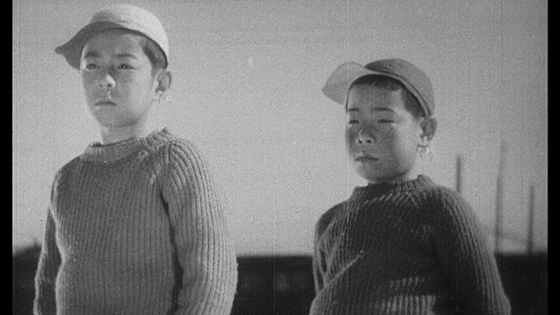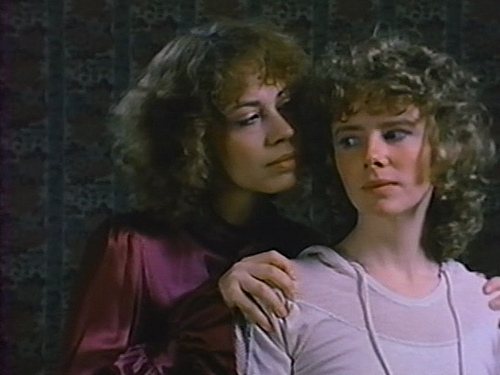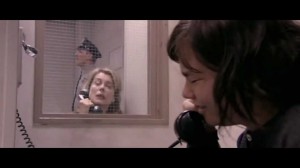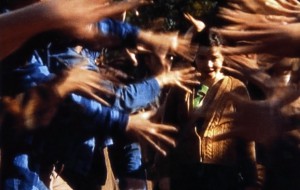The following is a lecture delivered at a symposium, “Yasujiro Ozu in the World,” organized by Shigehiko Hasumi in Tokyo on December 11, 1998. The other participants, apart from Hasumi himself, were Jean Douchet (the keynote speaker), Hou Hsiao-hsien, his screenwriter Tien-wen Chu, and Thierry Jousse. I’m proud to say that Hasumi, my favorite contemporary film critic, has included a link to this text on his own web site, mube.jp. — J.R.

I’d like to preface these remarks by citing a moment from Ozu’s I Was Born, But… (1932) and the particular significance it has for me. During the home movie projection which marks the critical turning point in the film from comedy to tragedy, and shortly before the clowning of the father in front of his boss appears in one of the home movies, the father’s two little boys start having a debate about the zebra they see on the screen — does it have black stripes on white, or white stripes on black? — creating a disturbance that momentarily halts the screening. In comparable fashion, a spurious, distracting, and no less innocent debate has been persisting about Ozu for years: is he a realist or a formalist? What seems lamentable about this debate is that it fails to perceive that cinematic forms and social forms are not alternatives in the world of Ozu but opposite sides of the same coin, so that it should be impossible to speak about one without speaking about the other. Read more
The following is a chapter from my book Film: The Front Line 1983 (Denver, CO: Arden Press) — which I’m sorry to say is only available now at ridiculously inflated prices (one copy at Amazon currently sells for $989.90). It probably remains the least well known of my books. I’m immensely grateful to Jed Rapfogel and Stephanie Gray at New York’s Anthology Film Archives for furnishing me with a document file of this essay so that I could post it here, originally to help promote their Mark Rappaport retrospective in March 2011, prior to the updated version of this held earlier this year. Readers should also consult my separate articles about Rappaport’s Rock Hudson’s Home Movies and From the Journals of Jean Seberg as well as my interview with Rappaport about the latter, all of which are also available on this site, along with a more recent piece about two of his videos. — J.R.

When the critic of a narrative film is feeling desperate, the first place that he or she is likely to turn to is a plot summary. Feeling rather desperate about my capacity to do justice to the last two features of the remarkable Mark Rappaport, I looked up the synopses and reviews of The Scenic Route and Impostors in the usually reliable Monthly Film Bulletin, which appeared precisely three years apart (February 1979 and February 1982), only to discover that each critic, Geoffrey Nowell-Smith and Simon Field, respectively, starts off with the admission that his own synopsis is misleading. Read more
From the Chicago Reader (October 27, 2000). — J.R.

Dancer in the Dark
**
Directed and written by Lars von Trier With Bjork, Catherine Deneuve, David Morse, Peter Stormare, Joel Grey, and Jean-Marc Barr.

To put it in the singsongy fashion of its own tacky musical numbers, Lars von Trier’s Dancer in the Dark enrages as well as engages, but I must confess that it also fascinates with its capacity to elicit extreme reactions. Ever since this musical about a woman from communist Czechoslovakia working in an American factory won the Palme d’Or and best actress prize (for rock star Bjork) from a Cannes jury headed by Luc Besson — one of the only Europudding directors who’s both crass and clever enough to rival von Trier as the most shameless sensationalist around — it has provoked hysterical reactions, pro as well as con. Viewers are struck by its technology (it was allegedly shot with 100 stationary digital cameras) as well as its aesthetics, its setting and social aspects, and its melodramatic story, not to mention its musical numbers. Though the movie certainly has its American defenders, many of its most vociferous detractors come from this country too. It’s not too surprising considering that this movie offers a horrific view of the American justice system, one you’d expect to find in an east European propaganda film shot 40 or 50 years ago. Read more




